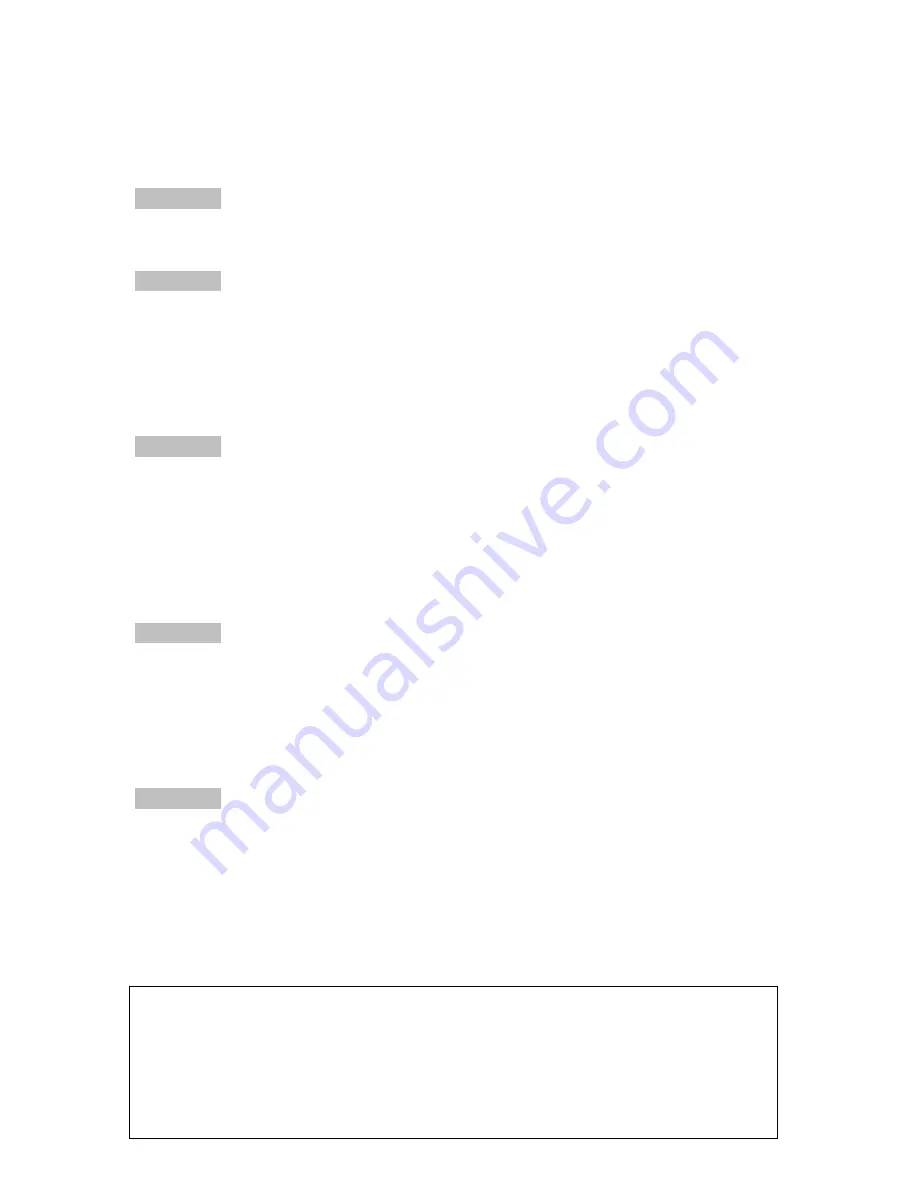
52
INSPECTION NOTE:
a. There must be in / out play in installed clutch, 0.4mm to 1.0 mm
(0.015” to 0.040”).
b. Excess in/out will cause early crank seal failure.
c. A blue clutch drum is worn out from excessive slippage or improper
lubrication.
CLUTCH ASSEMBLY:
1. After cleaning or replacing the spring washers, reassemble the stack up of
washers.
CAUTION:
It is important to reassemble the washer stack to that which is recommended or
to your own specialized stack.
CAUTION:
It is also important that all three shoes are stacked the same. (See figure 32)
2. Clean the threads of the stack bolt and the clutch with contact cleaner
removing all old thread locking material.
3. Apply high strength (red) thread lock material to the stack bolt and tighten to
12 ft-lb (16 N-m).
CAUTION:
Avoid allowing excess thread lock material to contact the spring washers and the
clutch or the clutch is likely to malfunction.
4. Use fine emery paper on the center hole of the clutch and on the tapered
section of the crankshaft.
5. Apply a small amount of wicking / bearing retainer (green) thread lock agent
to the center tapered section of the crankshaft and taper of clutch arbor.
CAUTION:
Lean the bike / engine such that any excess thread lock agent goes away from
the bushing in the clutch drum.
6. Put the clutch back in.
7. Apply high strength (red) thread locking agent to the threads and install the
nut and torque to 40 ft-lb (54Nm) with the special socket (see figure 33).
CAUTION:
Use high strength (red) thread locker on the threads of the clutch nut. If you are
using an impact socket, just zap it lightly with an air wrench to tighten it because
there are only about 4 threads inside the nut and they can be easily stripped. If
you are tightening it by hand, you can hold the crank from turning with the clutch
removal spanner ECMU0082.
Install the clutch cover tightening the bolts from inside out. (8 or 10 mm socket,
5.8 ft-lb, 7.8 Nm).
Summary of Contents for 2009 ECX50
Page 1: ......
















































